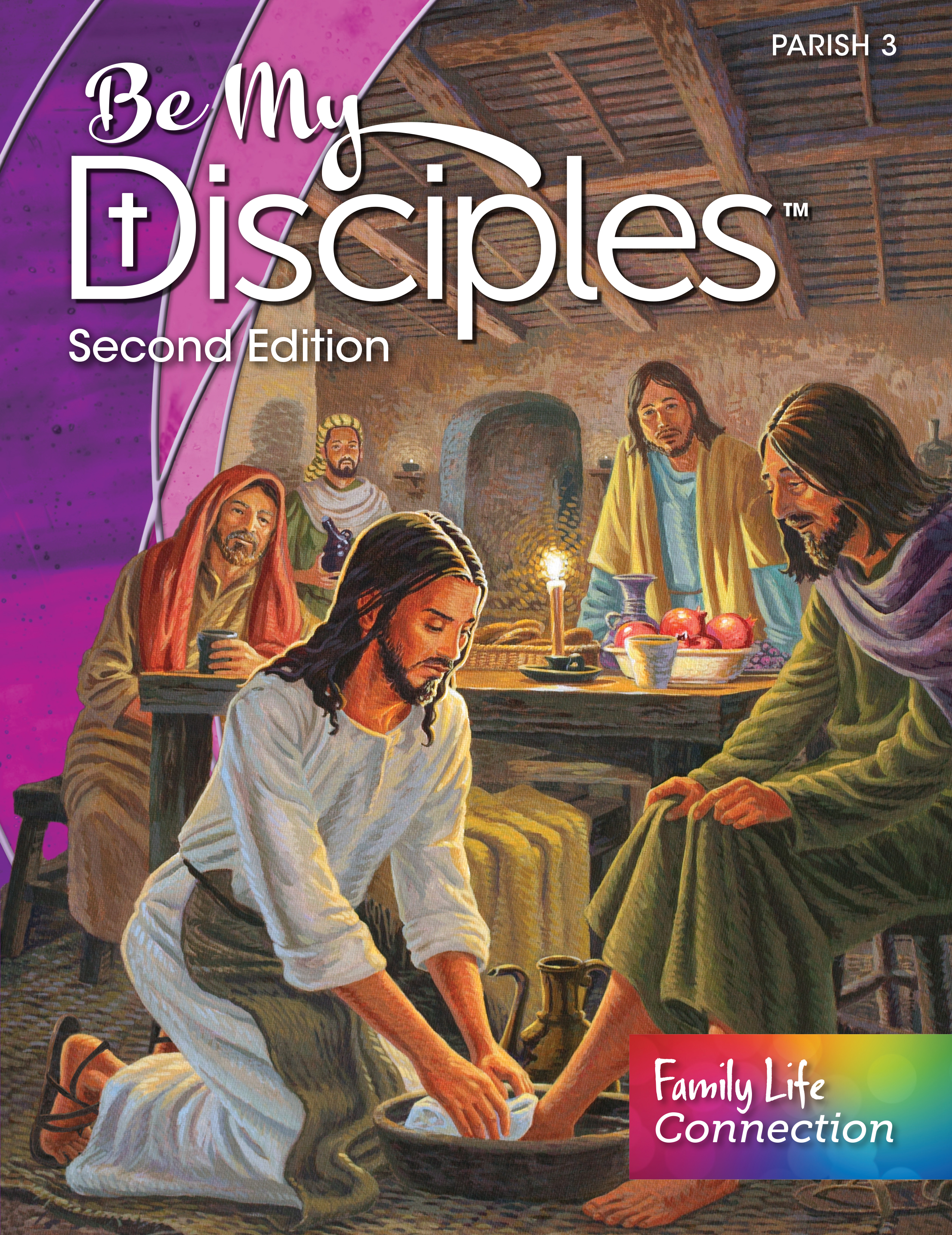Many years ago, I was confronted with a question that continues to impact my faith today. The question was written on a sign hanging in a parish office.
“If someone accused you of being a Christian, would there be enough evidence to convict you?”
 At the Last Supper, Jesus told his disciples, “This is how all will know that you are my disciples if you have love for one another.”
At the Last Supper, Jesus told his disciples, “This is how all will know that you are my disciples if you have love for one another.”
A fruit of that love is joy, something we, and our children, don’t hear enough about in our religious education programs. It is not the serious, somber, piety of our faith that draws people to Jesus. It is love – and divine joy.
How often do we see an image of Jesus smiling or laughing? Certainly, it’s not because he didn’t do those things. Those who decided to follow Jesus, in spite of the very strong possibility they could lose their lives in the process, were drawn to a man who possessed a powerful, radiant, inner joy that called to them. His divine joy flowed from his experience of and relationship with God, the Father, and the Holy Spirit.
Looking at the world today, especially in the lives of our young people, Christian joy is often in short stead. The challenges of this culture are a significant part of the reason why two teens, sitting near me in a motel dining room, discussed suffering from anxiety and needing to take medication to sleep. Experts report that even very young children today are suffering from anxiety, sleep deprivation, fear of many things, and emotional overload. Feelings, for many, are in the driver’s seat.
How can we cultivate joy, founded in an encounter with Jesus, in our students so they may go into the world more secure in the love of God?
Praise – The renowned author of the Chronicles of Narnia, C.S. Lewis, wrote, “Praise is the mode of love which always has some element of joy in it.” First Friday Masses and Youth Masses are wonderful opportunities for children to offer praise to God within the liturgy. Frequent opportunities also present themselves in the classroom. Help children find reasons and ways to praise God even when they are feeling poorly. Something simple like, “Thank you, God, for helping me get through today with your love,” can nurture trust in God’s care.
Holy Spirit – In his letter to the Romans, Saint Paul writes, “May the God of hope fill you with all joy and peace as you trust in him, so that you may overflow with hope by the power of the Holy Spirit” (15:13). Many children, and adults, do not understand the Holy Spirit as a separate person of the Trinity, but some people have a devotion to the Holy Spirit as others do to Mary or the saints. Introduce your students to God, the Holy Spirit, in small ways, so they come to understand the Holy Spirit as the one who gives us our gifts of love and joy.
Language – Speak the language of joy. Words matter. Pray Psalm 100 with your class. It is described as a psalm for grateful thanksgiving. It begins (depending on the translation), “Make a joyful noise unto the Lord, serve the Lord with gladness; come before his presence with singing …” Reflect on the words of the full Psalm and ask students how they feel, or what images they see when they pray the Psalm.
Self-reflection – There is no lesson more powerful than the person of the teacher or catechist. Give yourself the gift of time alone with God, to offer praise and prayers for a deeper relationship with the Holy Spirit so Christian joy may be yours to share with your students.
 About the Author
About the AuthorMary Clifford Morrell, mother of six and grandmother to ten, is a Catholic journalist, editor, and author who has served the Dioceses of Metuchen and Trenton, New Jersey; Burlington, Vermont, and RENEW International in the areas of religious education and communication.
Product Highlight
 Be My Disciples Second Edition
Be My Disciples Second Edition
Build a world filled with Christ's Disciples with Be My Disciples. This innovative and complete religious education program empowers children and their families to grow in their relationships with Jesus Christ, develop the habits of discipleship, and decide each day to live as followers of Jesus.
Be My Disciples shares the Christian story through the use of Sacred Scripture and age-appropriate presentation of Sacred Tradition. It forms children to take their place in the midst of the parish community and to continue to grow in their identity as sons and daughters of God. Resources include a wealth of digital resources available for children, parents, catechists, and program directors.
The program leads Catholic children and their families to:
- Grow in their conversion to Jesus Christ
- Develop the habits of discipleship
- Decide each day to choose life in Christ
- Live as active, committed members of the Catholic Church
